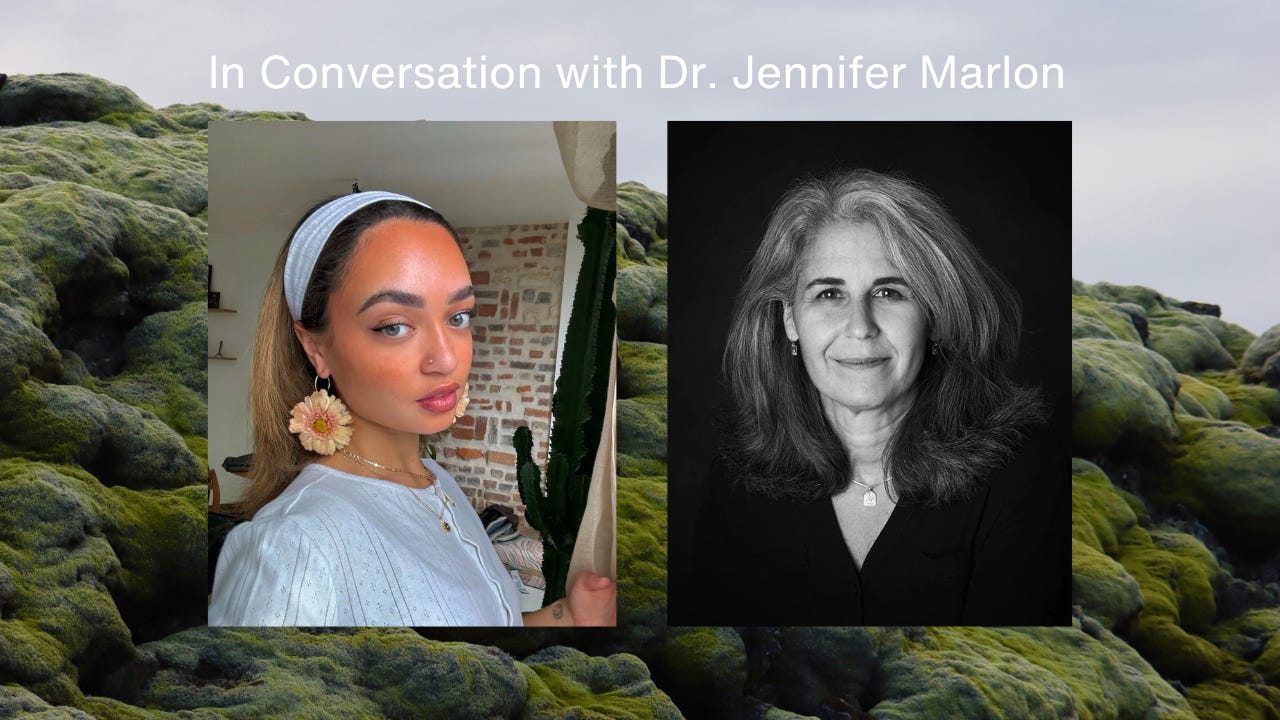Climate 101: I Asked A Yale Climate Scientist About The LA Wildfires
In Conversation with wildfire and climate researcher Dr. Jennifer Marlon
(Scroll to the bottom to listen to my conversation with Dr. Jennifer Marlon)
Not long after the fires in LA began this January, online discourse was already ripe with hot takes, conspiracies, one-liners, and explainer videos attempting to make sense of the unprecedented fire-storm disaster. As someone living in LA, I could feel the sense of anger and confusion bubbling up in the community. How could something like this have happened? Why was it this bad? How could there have possibly been four different fires coinciding at the same time, destroying entire neighborhoods in mere hours? Questions like this are valid, as is our anger and confusion. As the climate crisis continues to worsen, natural disasters are going to continue shattering records, becoming more and more unprecedented each time they occur. We are living in a global climate that is 1.5° warmer than it was before the industrial revolution. 1.5 degrees might seem minimal, but on a planetary scale the effects are massive.
So, when I hear conspiracies and misinformation bubbling up, in a way, I understand why. I get it. The global climate we’re living in is unprecedented. The climate that we’re all used to, and the environment that we all grew up with, is becoming one of the past. We’ve never experienced any of this before, so not believing what we’re seeing is a normal response. It’s a part of the climate grieving process. And when I see people directing their anger and confusion towards certain elected officials, I also get it. Often, our first instinct in times of crises to direct our anger to one person, one problem, one thing that can be fixed. But the climate crisis can not be solved by pointing fingers at each other or directing our energy at single individuals. It’s called a “threat multiplier” for a reason— because the environment in which our society exists is becoming unstable, every single societal issue we face is becoming more complex due to climate change.
That’s why, in times of information overload, it’s crucial that we go straight to the source of information. Science is an ancient way of exploring truths about the world through creativity, forming hypotheses, repeatable experimentation and testing, and overtime, hopefully forming scientific theory through mass consensus, which is the highest level of universally accepted knowledge that we know of. It’s a hard time to be a climate scientist, I know because I used to be one.
So when I had the chance to interview Dr. Jennifer Marlon, a senior climate and wildfire researcher at the Yale School of The Environment, I knew this was the perfect time to cut through the noise of misinformation and go straight to the source. I adored our conversation; we discussed how wildfires are changing overtime in the US, how humans are playing a role, findings from her research, practical ways we can adapt, prevent further damage, and change our relationship with the land and fire overall. We even discussed ways to maintain hope & joy in these dark times.
Listen to excerpts from our conversation here (you’re going to want to listen to this one):
How are wildfires changing over time and how does the scientific data explain this?
How is human activity changing the intensity of wildfires in the US?
How do most wildfires start in the first place, and how is that changing?
The extreme wind speeds contributed to the severe intensity of the LA wildfires. Does climate change have anything to do with that?
How is climate change making weather more chaotic or unpredictable?
How have wildfires responded to abrupt changes in climate in the past?
What is the impact of the actions we take to help, and is it working? What gives you hope?
Do you know of any fire resilient forestry solutions that should be implemented, and do you know of any partnerships with Indigenous groups doing land management?
As a climate scientist, how has your outlook of the future changed based on the current elected presidential administration?
Questions for Dr. Marlon from the Climate Diva community:
What are some things that we can do as teenagers and young people who are constantly worried about our future?
How can we ensure equitable recovery from the climate crisis in a way that promotes resilience?
Let me know your thoughts on this conversation— we hope you enjoyed it, and thank you as always for being here and being a part of this beautiful community. More to come!






Amazing!
Thanks for your great contribution. Massive space-based solar farms will be the answer to these problems to a large degree. Many countries and tech partners are working on the technology and we'll reap the benefits within the next 10 years. No more fossil fuel needed. Clean energy.